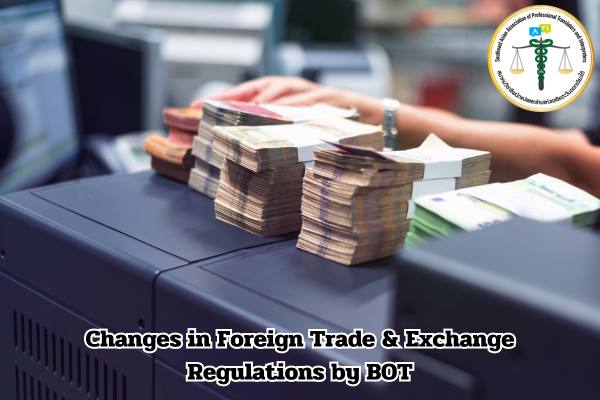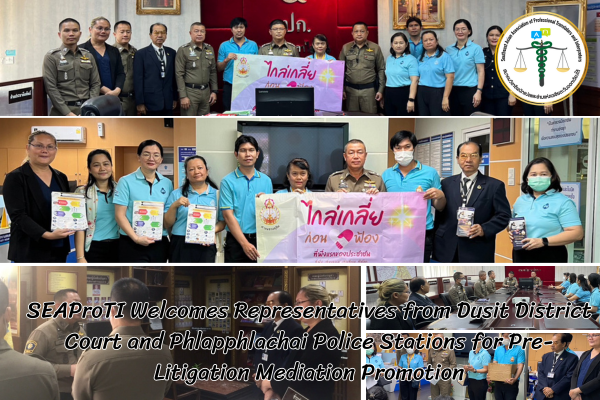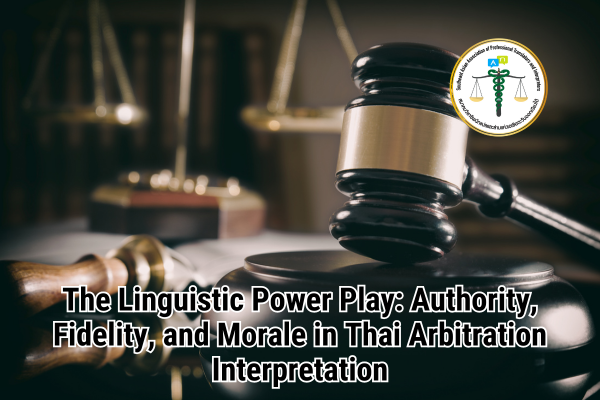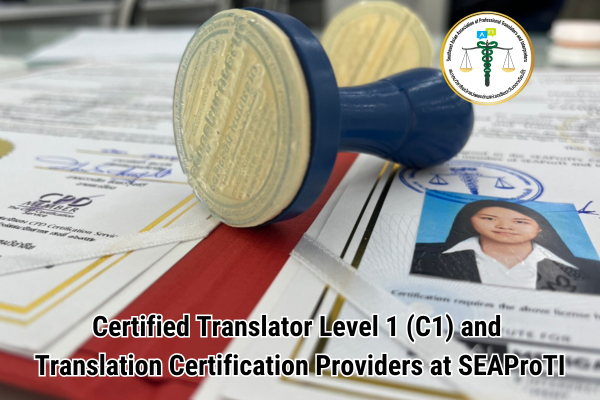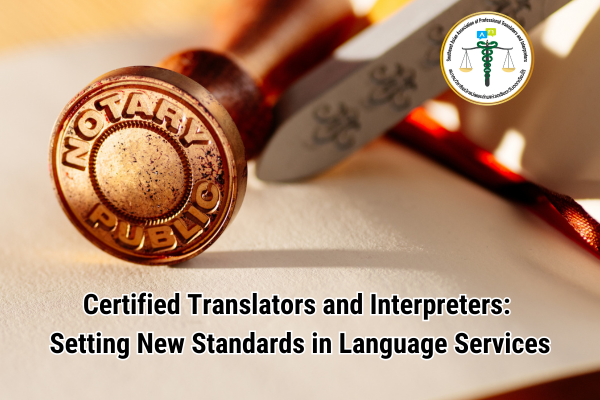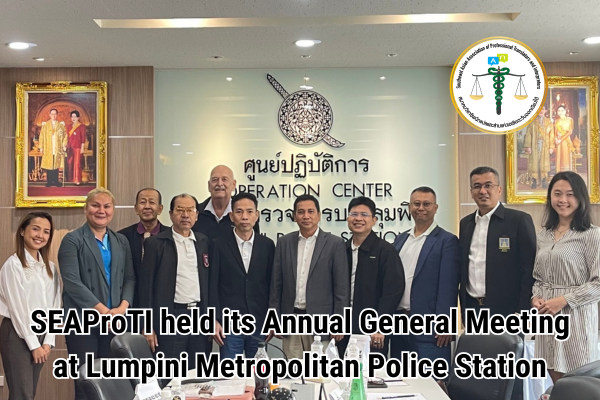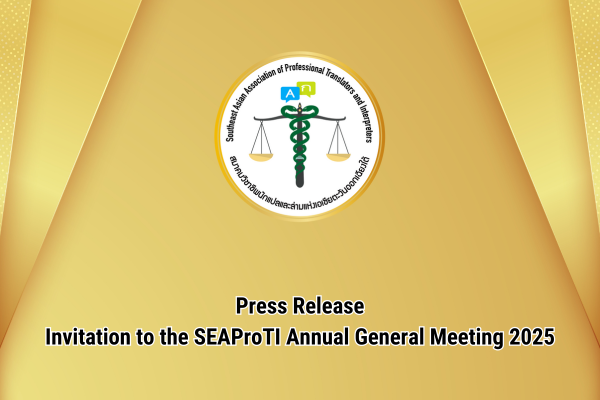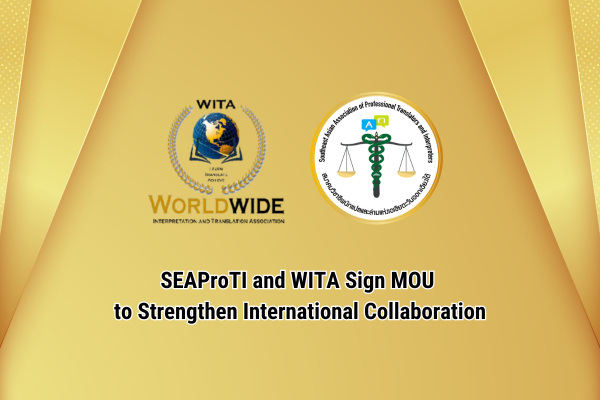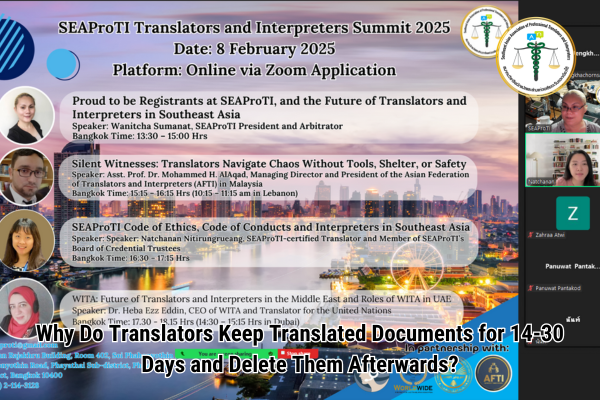Changes in Foreign Trade Regulations and Foreign Exchange Policies by the Bank of Thailand
19 February 2025, Bangkok – The Bank of Thailand Act B.E. 2485 (1942) outlines the objectives, scope of operations, and organizational structure of the Bank of Thailand (BOT), adhering to international central banking standards. Its primary mission is to maintain the stability and efficiency of the financial system, financial institutions, and payment systems through transparent and responsible processes.
Alongside the enactment of the Bank of Thailand Act, the Foreign Exchange Control Act B.E. 2485 (1942) and Ministry of Finance Notification No. 13 (B.E. 2497) were issued. These regulations became the legal foundation for controlling foreign exchange in Thailand. The Bank of Thailand (BOT) was entrusted by the Ministry of Finance to oversee foreign exchange management, stipulating that all foreign exchange transactions must be conducted through commercial banks and entities licensed by the Ministry of Finance, such as money changers, money transfer agents, and companies authorized to conduct foreign exchange.
Recently, the Bank of Thailand (BOT) announced changes in foreign trade regulations and foreign exchange policies, driven by the need to facilitate capital outflows and reduce pressure on the Thai Baht’s value. The changes also aim to reduce Thailand’s current account surplus. These changes include:
Repatriation of Export Earnings
Repatriation of export earnings refers to bringing revenue from exports of goods or services, denominated in foreign currency, back into the exporting country. The recent change allows exporters with export earnings of up to USD 200,000 per export shipment to retain their export proceeds abroad indefinitely (up from the previous limit of USD 50,000). This change helps reduce transfer costs and manage exchange rate risks effectively. Moreover, the BOT is in discussions with the Ministry of Finance to increase the repatriation limit from USD 200,000 to USD 1 million per export shipment within the next three months, which will allow most exports to keep their earnings abroad.
Investment in Foreign Securities
For investment in foreign securities, individual investors are now allowed to invest up to USD 200,000 per year in foreign securities without the need for intermediaries in Thailand. In the past, certain criteria had to be met to invest in foreign securities. This adjustment makes it more convenient and faster for individuals to invest in foreign securities.
Outward Remittances
Outward remittances, which were previously only permitted under specific conditions listed in the approval list, are now allowed freely, with some exceptions such as transactions involving foreign currency exchanges with foreign financial institutions. Individuals planning to move abroad or remit money to relatives are now allowed to do so freely. Purchases of real estate abroad can be made up to USD 50 million per year and can be conducted in the name of family members.
Trading Gold in Foreign Currencies
Investors in Thailand are now allowed to trade gold in foreign currencies through foreign currency deposit accounts with commercial banks in Thailand. These transactions can be conducted without converting to Thai Baht, which helps ease the pressure on the Thai Baht caused by gold-related transactions.
These changes are aimed at improving financial stability and fostering sustainable economic growth. They not only address domestic financial sector needs but also align with global economic development trends.
Role of Certified Translators, Translation Certifiers, and Certified Interpreters from the Southeast Asian Association of Professional Translators & Interpreters (SEAProTI)
The changes in financial regulations discussed above are not just the actions of the Bank of Thailand but also involve the translation of important legal documents necessary for such transactions. For example, translating documents related to international money transfers or foreign investments. Certified translators, translation certifiers, and certified interpreters from the Southeast Asian Association of Professional Translators & Interpreters (SEAProTI) play a crucial role in providing accurate and reliable translation services. This is essential for ensuring that international transactions are carried out with proper understanding and minimizing errors caused by incorrect translations.
Certified translators and interpreters who specialize in legal and financial fields are particularly important for ensuring that all parties involved fully understand the terms and conditions outlined in legal documents. This ensures that international financial transactions proceed smoothly and securely, which is increasingly critical in today’s globalized world. SEAProTI plays an important role in guaranteeing the accuracy and standards of translations in legal and financial matters, ensuring compliance and trust in cross-border communication.
SEAProTI’s certified translators, translation certification providers, and certified interpreters:
The Southeast Asian Association of Professional Translators and Interpreters (SEAProTI) has officially announced the criteria and qualifications for individuals to register as “Certified Translators,” “Translation Certification Providers,” and “Certified Interpreters” under the association’s regulations. These guidelines are detailed in Sections 9 and 10 of the Royal Thai Government Gazette, issued by the Secretariat of the Cabinet under the Office of the Prime Minister of the Kingdom of Thailand, dated July 25, 2024, Volume 141, Part 66 Ng, Page 100.
To read the full publication, visit the Royal Thai Government Gazette
การปรับเปลี่ยนกฎระเบียบการค้าต่างประเทศและการแลกเปลี่ยนเงินตราของธนาคารแห่งประเทศไทย
19 กุมภาพันธ์ 2568, กรุงเทพมหานคร – พระราชบัญญัติธนาคารแห่งประเทศไทย พ.ศ. 2485 ได้กำหนดวัตถุประสงค์ ขอบเขตการทำงาน และโครงสร้างองค์กรของธนาคารแห่งประเทศไทยตามมาตรฐานการธนาคารกลางสากล เพื่อรักษาความเสถียรและประสิทธิภาพของระบบการเงิน ระบบสถาบันการเงิน และเพื่อรักษาความเสถียรและประสิทธิภาพของระบบการเงิน ระบบสถาบันการเงิน และระบบการชำระเงินที่มีความโปร่งใสและสามารถตรวจสอบได้
พร้อมกับการตราพระราชบัญญัติธนาคารแห่งประเทศไทย ก็ได้มีการประกาศพระราชบัญญัติควบคุมการแลกเปลี่ยนเงินตรา พ.ศ. 2485 และการออกประกาศกระทรวงฉบับที่ 13 (พ.ศ. 2497) ซึ่งกฎระเบียบเหล่านี้ได้กลายเป็นพื้นฐานทางกฎหมายในการควบคุมการแลกเปลี่ยนเงินตราในประเทศไทย โดยธนาคารแห่งประเทศไทย (ธปท.) ได้รับมอบหมายจากกระทรวงการคลังให้ดูแลการบริหารการแลกเปลี่ยนเงินตราต่างประเทศ โดยให้ทุกการทำธุรกรรมแลกเปลี่ยนเงินตราต่างประเทศต้องดำเนินการผ่านธนาคารพาณิชย์และองค์กรที่ได้รับอนุญาตจากกระทรวงการคลัง เช่น ตัวแทนแลกเงิน ตัวแทนโอนเงิน และบริษัทที่ได้รับอนุญาตจากกระทรวงการคลังให้ทำการแลกเปลี่ยนเงินตรา
เมื่อไม่นานมานี้ ธนาคารแห่งประเทศไทย (ธปท.) ได้ประกาศการปรับเปลี่ยนกฎระเบียบการค้าต่างประเทศและการแลกเปลี่ยนเงินตรา โดยการปรับเปลี่ยนนี้เกิดขึ้นจากความจำเป็นในการอำนวยความสะดวกในการไหลออกของเงินทุนและลดแรงกดดันที่มีต่อค่าเงินบาท การดำเนินการนี้ยังมีเป้าหมายเพื่อลดการเกินดุลบัญชีเดินสะพัดของประเทศไทย โดยมีการปรับเปลี่ยนดังนี้:
การนำเงินจากการส่งออกกลับเข้าประเทศ
การนำเงินจากการส่งออกกลับเข้าประเทศหมายถึงการนำรายได้จากการส่งออกสินค้าหรือบริการที่มีมูลค่าเป็นสกุลเงินต่างประเทศกลับมาที่ประเทศผู้ส่งออก การปรับเปลี่ยนล่าสุดคือ การอนุญาตให้ผู้ส่งออกที่มีรายได้จากการส่งออกไม่เกิน 200,000 ดอลลาร์สหรัฐฯ ต่อใบขนสินค้าสามารถเก็บเงินที่ได้จากการส่งออกไว้ในต่างประเทศได้โดยไม่มีกำหนดเวลา (จากเดิมที่กำหนดไว้ที่ 50,000 ดอลลาร์สหรัฐฯ) การเปลี่ยนแปลงนี้จะช่วยลดต้นทุนในการโอนเงินและจัดการความเสี่ยงจากอัตราแลกเปลี่ยนได้อย่างมีประสิทธิภาพ นอกจากนี้ ธปท. ยังอยู่ระหว่างการหารือกับกระทรวงการคลังในการเพิ่มขีดจำกัดสำหรับการนำเงินส่งออกกลับเข้าประเทศจาก 200,000 ดอลลาร์สหรัฐฯ เป็น 1 ล้านดอลลาร์สหรัฐฯ ต่อใบขนสินค้าในระยะเวลา 3 เดือนข้างหน้า ซึ่งจะช่วยให้การส่งออกส่วนใหญ่ไม่ต้องนำเงินกลับมา
การลงทุนในหลักทรัพย์ต่างประเทศ
ในส่วนของการลงทุนในหลักทรัพย์ต่างประเทศ ผู้ลงทุนรายย่อยสามารถลงทุนในหลักทรัพย์ต่างประเทศได้ถึง 200,000 ดอลลาร์สหรัฐฯ ต่อปี โดยไม่ต้องผ่านตัวกลางของประเทศไทย ซึ่งในอดีตจะต้องมีคุณสมบัติตามเกณฑ์ที่กำหนดในการลงทุนแบบนี้ การปรับเปลี่ยนนี้ช่วยให้การลงทุนในหลักทรัพย์ต่างประเทศเป็นไปอย่างสะดวกและรวดเร็ว
การโอนเงินออกนอกประเทศ
การโอนเงินออกนอกประเทศที่เดิมจะได้รับอนุญาตเฉพาะในกรณีที่ระบุไว้ในลิสต์อนุญาต จะได้รับการอนุญาตอย่างเสรี ยกเว้นบางกรณีเฉพาะ เช่น การชำระธุรกรรมแลกเปลี่ยนเงินตรา/บาทกับสถาบันการเงินต่างประเทศ การอนุญาตให้บุคคลที่ต้องการย้ายไปต่างประเทศหรือโอนเงินให้ญาติสามารถทำได้อย่างอิสระ การซื้ออสังหาริมทรัพย์ในต่างประเทศสามารถทำได้ไม่เกิน 50 ล้านดอลลาร์สหรัฐฯ ต่อปี และสามารถซื้อในนามของสมาชิกในครอบครัวได้
การซื้อขายทองคำในสกุลเงินต่างประเทศ
นักลงทุนในประเทศไทยจะสามารถทำการซื้อขายทองคำในสกุลเงินต่างประเทศได้ผ่านบัญชีเงินฝากสกุลเงินต่างประเทศที่เปิดกับธนาคารพาณิชย์ในประเทศไทย และการทำธุรกรรมนี้สามารถทำได้โดยไม่ต้องแลกเปลี่ยนเป็นเงินบาท สิ่งนี้จะช่วยลดแรงกดดันต่อค่าเงินบาทจากการทำธุรกรรมที่เกี่ยวข้องกับทองคำ
การปรับเปลี่ยนเหล่านี้มีวัตถุประสงค์เพื่อให้เกิดเสถียรภาพทางการเงินที่ดีขึ้นและส่งเสริมการเติบโตทางเศรษฐกิจที่ยั่งยืน ซึ่งไม่เพียงแต่ตอบสนองต่อความต้องการของภาคการเงินภายในประเทศ แต่ยังสอดคล้องกับการพัฒนาเศรษฐกิจโลก
บทบาทของนักแปลรับรอง ผู้รับรองการแปล และล่ามรับรองจากสมาคมวิชาชีพนักแปลและล่ามแห่งเอเชียตะวันออกเฉียงใต้ (SEAProTI)
การปรับเปลี่ยนกฎระเบียบทางการเงินที่กล่าวถึงข้างต้นไม่ได้เป็นเพียงการดำเนินการของธนาคารแห่งประเทศไทยเพียงอย่างเดียว แต่ยังเกี่ยวข้องกับการแปลเอกสารทางกฎหมายที่มีความสำคัญในการดำเนินการดังกล่าว เช่น การแปลเอกสารการโอนเงินระหว่างประเทศ หรือการแปลเอกสารเกี่ยวกับการลงทุนต่างประเทศ ที่นักแปลรับรอง ผู้รับรองการแปล และล่ามรับรองจากสมาคมวิชาชีพนักแปลและล่ามแห่งเอเชียตะวันออกเฉียงใต้ (SEAProTI) สามารถมีบทบาทสำคัญในการให้บริการแปลเอกสารที่มีความถูกต้องและน่าเชื่อถือ ซึ่งเป็นสิ่งสำคัญในการทำธุรกรรมระหว่างประเทศให้เกิดความเข้าใจที่ถูกต้องและลดข้อผิดพลาดจากการแปล
การรับรองการแปลจากนักแปลที่ได้รับการรับรองและล่ามที่มีความเชี่ยวชาญเฉพาะด้านในกฎหมายและการเงินจึงมีความสำคัญมากในการทำให้ทุกฝ่ายเข้าใจเงื่อนไขและข้อตกลงในเอกสารอย่างถูกต้อง ซึ่งจะช่วยให้การดำเนินธุรกรรมทางการเงินระหว่างประเทศเป็นไปได้อย่างราบรื่นและมีความปลอดภัยมากยิ่งขึ้น โดยเฉพาะอย่างยิ่งในโลกที่การสื่อสารข้ามพรมแดนมีความสำคัญมากยิ่งขึ้น SEAProTI จึงมีบทบาทสำคัญในการรับรองความถูกต้องและมาตรฐานของงานแปลในด้านการเงินและกฎหมายระหว่างประเทศ
เกี่ยวกับนักแปลรับรอง ผู้รับรองการแปล และล่ามรับรองของสมาคมวิชาชีพนักแปลและล่ามแห่งเอเชียตะวันออกเฉียงใต้
สมาคมวิชาชีพนักแปลและล่ามแห่งเอเชียตะวันออกเฉียงใต้ (SEAProTI) ได้ประกาศหลักเกณฑ์และคุณสมบัติผู้ที่ขึ้นทะเบียนเป็น “นักแปลรับรอง (Certified Translators) และผู้รับรองการแปล (Translation Certification Providers) และล่ามรับรอง (Certified Interpreters)” ของสมาคม หมวดที่ 9 และหมวดที่ 10 ในราชกิจจานุเบกษา ของสำนักเลขาธิการคณะรัฐมนตรี ในสำนักนายกรัฐมนตรี แห่งราชอาณาจักรไทย ลงวันที่ 25 ก.ค. 2567 เล่มที่ 141 ตอนที่ 66 ง หน้า 100 อ่านฉบับเต็มได้ที่: นักแปลรับรอง ผู้รับรองการแปล และล่ามรับรอง


